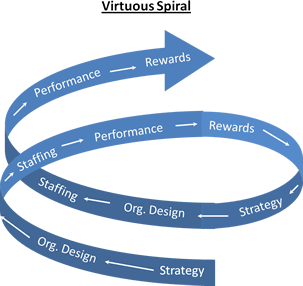Author credit: Scott Nicholas
Posted on LinkedIn by Scott Nicholas | 28 May 2018 | Inspiring Leadership through (brain) chemicals. It’s not just for leaders.
Some basic psychology and knowledge of the chemicals that unconsciously govern our behaviour can make leaders more effective. Whether you know it or not, your life is managed by chemicals. They’re not the chemicals you get from the chemist or a dark alley on a Friday night. They’re chemicals in your brain and the brain of everyone around you.
I’m talking about the chemicals that you’re creating all the time. They’ve come about as part of the evolutionary process. They’ve helped us survive and continue to do so today. They’re chemicals you’re probably already aware of: endorphins, dopamine, serotonin, oxytocin and cortisol. To harness their power, we have to understand what they are and how they work.
Endorphins are one of the “selfish” chemicals. You experience the effect of endorphins when you’ve exercised. Endorphins mask pain and help your recover when you exert yourself. They give you a buzz which can encourage you to exercise again. From an evolutionary perspective, it helped primitive humans recover from hunting prey.
Dopamine is the chemical hit you receive when you’ve succeeded. It’s why video games and the “gamification” model works so well. When you “level up” in a game, you get a hit of dopamine. Dopamine makes you feel like you’ve achieved something. You also get a hit of dopamine when you make the bed, find something that was lost or lob a ball in tennis.
Historically, these two “selfish” chemicals allowed cave people to persist and even enjoy the process of hunting, gathering and surviving.The two other chemicals – serotonin and oxytocin – are selfless chemicals.
When you feel pride or a sense of feeling valued, you’re experiencing serotonin’s effects. Serotonin regulates anxiety, happiness and overall mood. We also experience serotonin when someone selflessly does something for us. Simon Sinek, in his book Leaders Eat Last calls it the Leadership Chemical. Leaders provide their teams with a serotonin hit when they support or look out for their team members.
Oxytocin is the friendship chemical. We feel its effects when we experience friendship, trust and acts of kindness. When we know that someone is making an effort for us – perhaps it’s a personal touch or recognising something we’ve done – oxytocin is activated. We feel special and maybe even experience a sense of bliss.
Organisations and cultures that promote the behaviours that induce serotonin and oxytocin are providing their members with unconcious, positive and repeatable experiences. It’s addictive. Everyone wants to receive the positive, generous and supportive experiences.
Organisations that promote performance driven, win at any cost environments promote endorphins and dopamine production. This is not the collaborative, supportive environment that serotonin and oxytocin create. This is a harsher, selfish competitive environment. It’s every man for himself.
There’s one more chemical that can be damaging to our internal cultures: cortisol. It’s the chemical that is activated by stress. It’s the chemical that helps us to respond to danger and prepares us for the fight or flight response. In cut-throat, unkind or environments lacking in trust, everyone is feeling the effects of cortisol. They are on constant high-alert, waiting for danger to arrive.
Recent studies into cortisol production have shown that animals in the wild experience the cortisol response. When danger arrives, cortisol spikes and they run or fight to escape predators. When the danger passes, the cortisol reduces back to normal levels. However, when studying cortisol production in humans, cortisol is produced in much the same way. Cortisol increases when danger is perceived. The difference is that increasingly, it doesn’t subside. Cortisol production continues and we experience its prolonged effects: ready for danger, anxiety, fear and panic. The overwhelming increase in anxiety and depression in the workplace support this. We’re a workforce running on cortisol. We’re filled with worry, anxiety and panic without any respite.
In leadership, creating a positive, trust based culture has benefits beyond the performance of your team. You’re promoting the positive, selfless chemical responses.
Great leaders create a positive chemical factory in the brains of each team member.
The “factory” is producing serotonin and oxytocin. You’re tapping into a an unconscious need to create more serotonin and oxytocin. It’s an implicit desire in each team member that is being satisfied. You’re reducing fear and self preservation and promoting a collaborative, trust based culture.
You can use this knowledge to influence. You don’t have to be a leader. Providing your peers and those you need to influence without authority will respond to your serotonin and oxytocin hits. Give them a positive chemical experience and they’ll remember you. You can even do this with your boss.
Edward Lawler’s Virtuous Spiral is the academic description of this effect. His model describes an environment where positive team experiences are self perpetuating. When all of the elements are aligned, you’re providing a positive experience that continues to grow.
When we think about our responsibilities as leaders, we can become focussed on the metrics and tasks. It’s easy to forget about the people and what really motivates them. The chemical responses we’re experiencing daily, drive our behaviours. Recognising them and promoting the positive chemical responses in our sphere of influence is good for everyone. The team benefits, the leader benefits and most importantly, the individual benefits.
Reference:
Author credit: Scott Nicholas
Posted on LinkedIn by Scott Nicholas | 28 May 2018 | Inspiring Leadership through (brain) chemicals. It’s not just for leaders.


